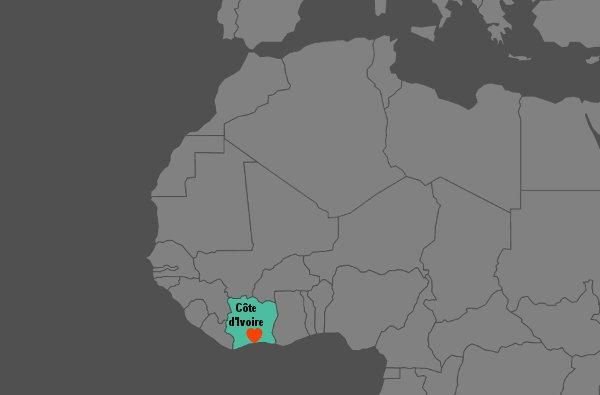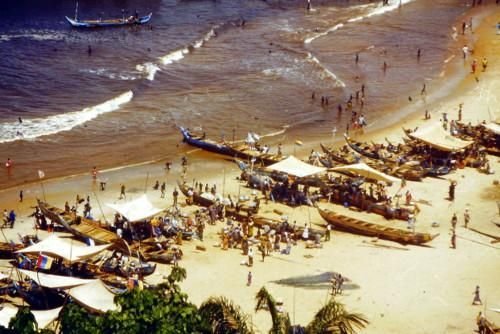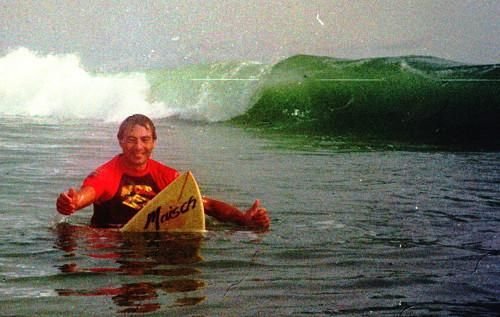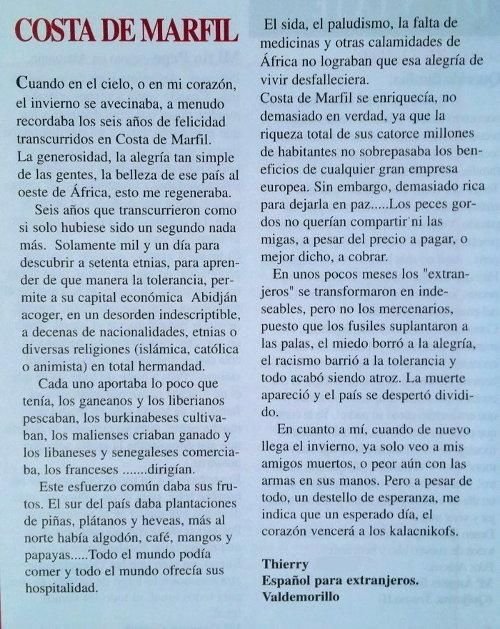This is an authorized translation in English of a post in French by @terresco: Rencontres avec l'Afrique - La Côte d'Ivoire
As my primary language is not English, there are probably some mistakes in my translation.
Remember that the person who speaks here is NOT me, Vincent Celier (@vcelier), but @terresco, a French guy.

In 1993 I had the chance to land a job in Ivory Coast. I had been a French civil servant for three years, an economics teacher, and I had applied to go abroad. At that time my passion was the mountain, all my efforts, my savings, were turned towards South America. Yet when the ministry phoned me and gave me 24 hours to accept or refuse a position in Ivory Coast, I immediately accepted the position.
A few weeks later I landed in Abidjan to discover West Africa. Ivory Coast had just experienced two important events for its history: the death of its historic leader, father of independence, who had managed to advance his country, Félix Houphouët-Boigny and the devaluation of its currency, common to 14 former French colonies, the CFA Franc.
An eventful arrival
The arrival at Abidjan airport was picturesque, rushed out: I was surrounded by a crowd of taxi drivers who were suddenly interested in myself and each of them wanted me to get in his taxi. I chose one at random, without even negotiating anything, thinking instinctively, and rightly, to free myself from others. He must have made me pay an inflated price, I do not remember; that's OK, this is the rule of the game.

In the morning, a second taxi took me to the Lycée Français, on the other side of the city. It was there, in this old Japanese car that had already lived several lives, that after a difficult night, I discovered a passion for Africa that never left me. The boulevards were immense, there reigned a tremendous cacophony, an adorable disorder, on the streets as well as on the sidewalks. A Mama (African lady of a certain age and a certain stoutness) in her colorful loincloth, laden with a banana bowl on her head to parade in front of my window. That's the image that made me love Africa, suddenly, as if by surprise.
Further on we crossed a pond overlooking a lagoon much larger than I suspected. In front of us the business district with its towers, the Ivorian Defense district. Even further, the Lycée Français, I was going to teach there for six years.
"Akwaba", greeted me the doorman at the entrance, "welcome". I felt at home already while I listened with a distracted ear to the advice that my future boss thought herself obliged to lavish me. "You will see at first it's a bit difficult, you have to make your mark, but after that you will love this country and this life". I already loved, with a love that never failed, even a few years later when there were moments more somber. She was doing her job and she was doing it well, but when she was saying disorganization, I was hearing atmosphere, when she was speaking of danger, I was hearing freedom.
Life is organized quickly
The life of a French official was royal. The high salary made daily life easy, it freed me from all constraints, to devote myself to work and leisure. It was customary to have employees, a psychologically difficult thing at first when one is used to being alone. You initially don't want it, but people are usually already attached to the house that you find. The former tenant has learned to love them and does not want to leave them without anything. He kindly obliges you to keep them. So I had a guard from Burkina Faso and a cook from Benin. Fantastic people that I left six years later with a huge heartache.

During the the week, we were going out a lot. Oh, no big outings, we usually ended up going to eat in a small restaurant. The prices were ridiculously low and the choices unlimited: African restaurants that wre called "maquis" where chickens were braised, punctuated by Zairian music, Lebanese restaurants very present for a long time in West Africa, French, Italian, Ethiopian ....
Our small group of friends was also multicultural, Ivorians, French, Belgians, Lebanese ... most were born in Ivory Coast and had memories of a happy childhood. They spoke the language of Abidjan, a mixture of local languages, French, and I do not know what was and still is a link between the Abidjan elders who cross each other by chance in the world.
I spent six years in Abidjan, six years so short to discover the 70 ethnic groups that make up the country, to discover the other countries of the sub-region. Six years of incredible encounters, fabulous journeys, unforgettable anecdotes, friends who are still so today. Six years of a lesson that marked my life forever, that of poor people but happy, tolerant and courageous in the face of adversity.
Politics, after great efforts, has managed to spoil everything as they say there. The end of my stay was made to the sound of the impacts, distant and less distant, Kalashnikov shots. My contract was over, I left with happy memories.
A few years later, I arrived in Spain. I was enrolled in classes to learn the language and the teacher asked us to write a small article about something we liked. I wrote about Ivory Coast who was still experiencing difficult moments; see the article below. I ask the indulgence of Spanish speaking people, it was my very beginnings in this language.
A few meetings marked me. If my memory accepts, I will mention some of them in future articles.

-- @terresco
From Cape Town to Mombasa series:
Africa, the long crossing
From Cape Town to Mombasa: South Africa
From Cape Town to Mombasa: Namibia
From Cape Town to Mombasa: Botswana
From Cape Town to Mombasa: Zimbabwe
From Cape Town to Mombasa: Zimbabwe, part 2, by @terresco
From Cape Town to Mombasa: Zimbabwe, part 3, by @terresco
From Cape Town to Mombasa: Zambia, by @terresco
From Cape Town to Mombasa: Malawi, by @terresco
From Cape Town to Mombasa: Tanzania #1, by @terresco
From Cape Town to Mombasa: Tanzania #2, by @terresco
From Cape Town to Mombasa: Tanzania #3, by @terresco
From Cape Town to Mombasa: Tanzania #4, by @terresco
From Cape Town to Mombasa: Kenya, by @terresco
